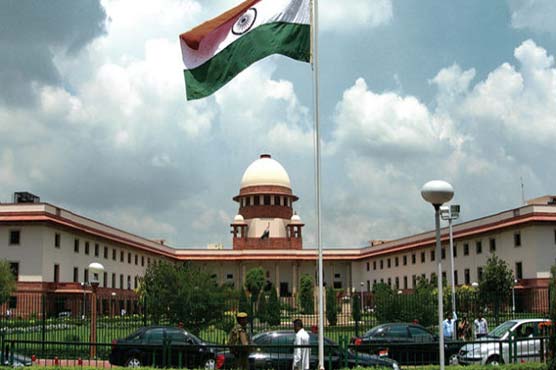India's top court orders protection for Kashmiris

SC told state govts and police chiefs to ensure there are no "attacks, threats or social boycott.
NEW DELHI (AFP) - India’s Supreme Court on Friday ordered protection for Kashmiris who have faced a violent backlash from a blast in Kashmir that killed 44 paramilitaries.
More than 700 Kashmiri students, workers and traders have returned to the Himalayan region from the rest of India to escape reprisals for the attack, which has escalated tensions with Pakistan.
The top court told state governments and police chiefs to ensure there are no "attacks, threats or social boycott" over the February 14 blast, the worst in the territory in three decades.
Video footage of Kashmiris being taunted or beaten has been widely shared on social media, while right-wing Hindu groups and some TV news channel pundits have encouraged reprisals.
Some Kashmiris have been suspended by Indian universities for their social media comments on the case. Others have been arrested on sedition charges.
"Immediately after the attack, mobs and vigilante groups engaged in vitriolic hate speech and began attacking, and threatening Muslims and Kashmiris throughout the country," said two activists who sought the Supreme Court action.
Mohammad Yasin Khan, president of Kashmir Traders and Manufacturers Federation, told AFP that threats of violence were still being made.
Khan said 300 students from Uttarakhand state alone have returned to Kashmir.
Kashmir business groups called for a protest shutdown Friday by shops and stores in the territory against the "continuing threats and intimidation" of Kashmiri people in Indian cities.
‘Pay a heavy price’
Prime Minister Narendra Modi, who faces a looming election, is under pressure to take a tough stand on the attack, which was condemned on Thursday by the UN Security Council. He has vowed the freedom fighters "will pay a heavy price".
Pakistan Prime Minister Imran Khan has vowed his country will retaliate if attacked.
India has sought to isolate Pakistan internationally and imposed trade restrictions against its neighbour.
On Thursday, India’s water resources and transport minister Nitin Gadkari reaffirmed an existing plan to restrict the flow of water to Pakistan from three rivers on Indian territory.
The sharing of water from the Indus River and its tributaries is regulated by a 1960 treaty.
Authorities have acknowledged, however, that it will take several years for the threat to have any impact as dams will have to be built to divert water.
Modi has made a similar threat before.

